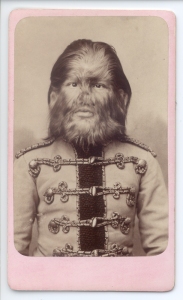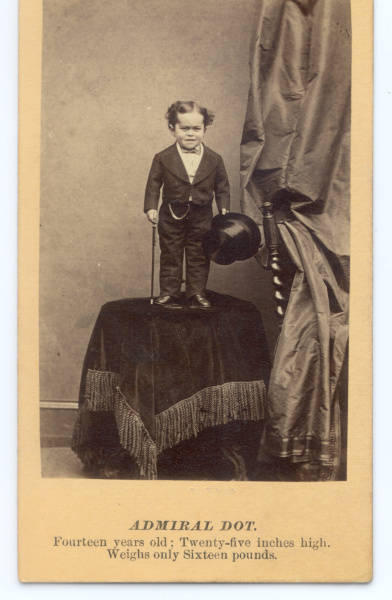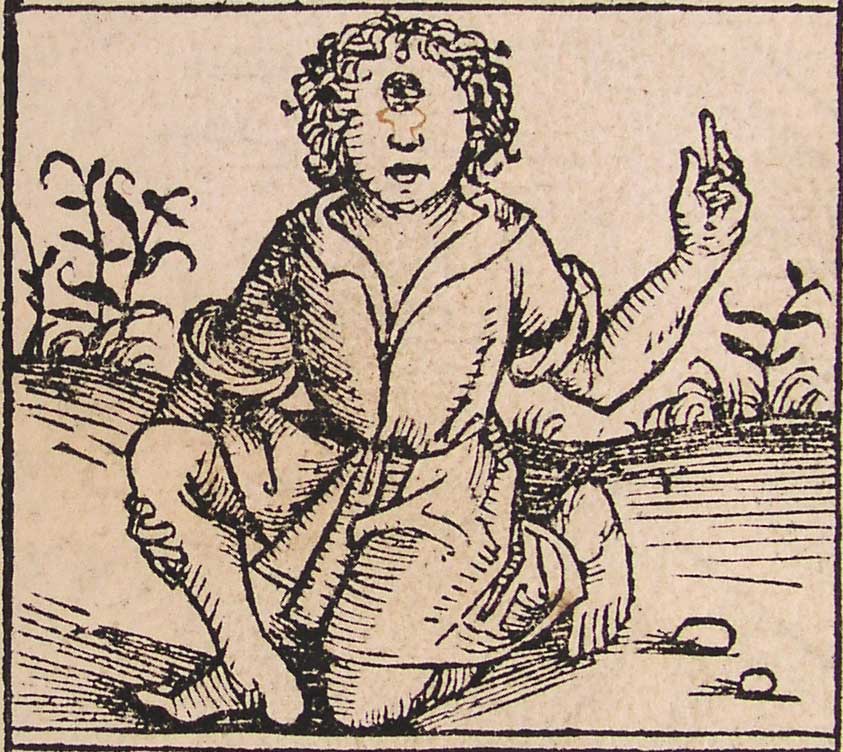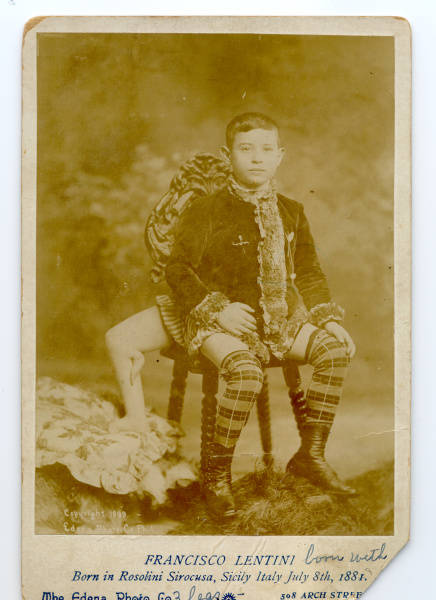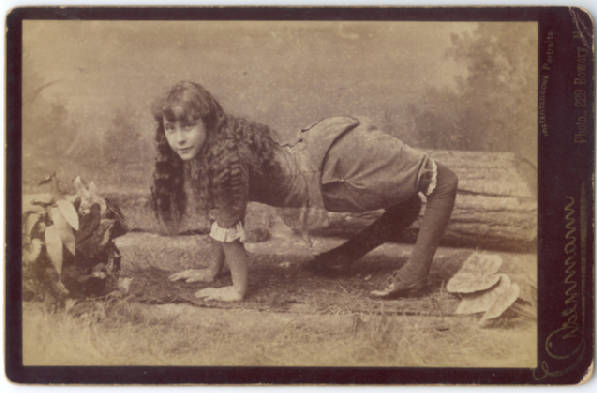|
|
Bill Di Nome | Modular 5, Lot E | 962-7138 | dinomew@uncw.edu University of North Carolina at Wilmington Class Hours: 6:30–9:15 p.m. | Tuesday Office Hours: Tuesdays 2–3 p.m. & by appointment
GLS 592-004 Freaks & the Freakish in Western Literature & Art Spring 2007
|
||||||||||||||||||||||||||||||||||||||||||||||||||||
|
|
“It follows that whoever has to do with a giantwill have to take on some of his traits.” Luigi Pulci, Morgante Maggiore, 28.142 (1494)
I have noticed that sometimes I frighten people; what they really fear is themselves. They think it is I who scare them, but it is the dwarf within them, the ape-faced manlike being who sticks up its head from the depths of their souls. —Pär Lagerkvist, Dvärgen (The Dwarf, 1944)
Course Objectives This course aims to 1. prepare graduate students to teach and to pursue research or creative projects on issues pertaining to ways in which the extraordinary body is represented, presented, discussed and interpreted in Western literature and art; 2. enable students to consider and debate changing understandings of physical difference relative to the construction of otherness and normativity. 3. encourage students to use the literature of the extraordinary body as a means of understanding wider aspects of Western society and culture.
Course Format The course will incorporate discussions; exploratory writing; primary readings in fiction, drama, narrative film and photography; critical readings; oral presentations; and research. We will focus our investigations through the lenses of myth, psychology, postcolonialism, and disability studies.
Topics to be investigated include:
Required Texts
On Reserve:
Presentation
on Criticism with Annotated Bibliography The presentation on criticism of a given work, author or artist will be due roughly in the middle of the semester. The presentation should be a lively delivery lasting between 10 and 15 minutes. It should be multimedia in format, concerning chief critical works, films, popular-culture materials and other references (as they apply) that you find interesting about your topic. The annotated bibliography should go farther afield to provide a broad background on the literature.
Discussion QuestionsFive to ten questions should be devised weekly about the readings. They may encompass the works of a single author or may be comparative in nature, and are intended to help generate in-class discussion. Please submit a copy each week to the instructor (hard copy or e-mail).
Final Project For your final project, you have the choice to pursue research or a creative final project. Research may be on any topic or special interest you hay have stemming from the material and should broaden your understanding of the focus of the course. If taking an approach requiring data collection, the investigation should include a critical review of relevant literature. If taking an approach via literary or art criticism, essays should make use of current criticism and may be comparative or deal with a single work or artist. If you select a single artist, you may wish to trace themes, discuss stylistic issues, to make comparisons to other artists, to explore the treatments or influences of artists studied here. Length: about 12 pages. Please include a list of works cited. Creative works are invited in any medium and in any genre. Collections of short works should be about 12 pages or more in length. Film, video or musical projects should be at least 15 minutes in duration. All creative projects must include a short artist’s statement (about 3 pages) that provides context for the work in relation to the course material and critical underpinnings. Please provide a selected bibliography or list of works cited.
Presentation on Criticism with annotated bibliography----------------------------------- 25% Weekly Discussion Questions---------------------------- 25% Final project--------------------------------------------- 50%
Attendance: Attendance is expected in a course at this level, but allowing for unforeseen circumstances, you may have one unexcused absence, the equivalent of a week’s worth of class time.
Special Needs Students with disabilities who need accommodation to complete the course requirements should notify me in writing as soon as possible. Please include a copy of your accommodation letter, available by registering with the Office of Disability Services (ext. 7555).
(Dates and assignments subject to change)
Updated 061222 |
